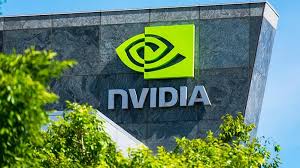I Believed the Nvidia 'Insider Dumping' Narrative. I Was Wrong.

For months, my perspective on Nvidia was cemented in skepticism. As a journalist covering the intersection of finance and technology, you learn to look for the cracks in any story that seems too good to be true. And with Nvidia, the cracks seemed obvious and growing. I read the headlines from major outlets like CNBC and Yahoo Finance, and the word they used burned into my brain: 'dumped'. Insiders had 'dumped' over a billion dollars in stock. To me, this wasn't just financial jargon; it was a damning verdict delivered by the people who knew the company best. I saw it as a five-alarm fire, a frantic signal that the blistering growth was unsustainable and the executives were cashing out before the inevitable correction.
This belief was reinforced by the persistent 'challenger' narrative. I would read a story in a respected publication like the Times of India quoting SoftBank's Masayoshi Son—a man who has made some of the boldest bets in tech history—predicting that OpenAI, not Nvidia, would ultimately be the world's most valuable company. I nodded along. It made perfect sense. Nvidia was selling the shovels in a gold rush, a crucial but ultimately transient role. The real, enduring fortunes would be made by the gold miners, the ones building the generative AI models that were capturing the world's imagination. My narrative was set: Nvidia was a brilliant but temporary king, and the smart money was already looking for the exit.
My conviction was solid, my arguments ready. I viewed the breathless analyst reports and soaring stock price with a cynical eye. And then came the moment that shattered my certainty. It wasn't a dramatic event, but a quiet, frustrating afternoon. I was preparing to write a piece reinforcing my skeptical thesis, using an analyst's projection of a $6 trillion market cap, highlighted by The Motley Fool, as a prime example of irrational exuberance. To properly debunk it, I decided to dive deep into the source data, to find the fundamental flaws in the bull case. I started by pulling the SEC filings on the insider sales, intending to highlight the sheer volume as my opening salvo. That was my mistake—or rather, my salvation.
Confronted with the dry, legalistic text of Form 4 filings and the details of 10b5-1 plans, my narrative of a panicked 'dump' began to crumble. These weren't impulsive, last-minute decisions made in a backroom. These were meticulously pre-scheduled trading plans, established months, sometimes more than a year, in advance. An executive deciding in October of the previous year to sell a tranche of shares the following August isn't panicking; they're planning. They are diversifying a personal portfolio that is, by nature of their job, dangerously over-concentrated in one single stock. It was the responsible, prudent financial planning any advisor would recommend. The 'dumping' narrative wasn't a story about a lack of confidence; it was a story about the media's preference for a dramatic verb over a boring truth. The realization was deeply uncomfortable. I had mistaken standard executive financial management for a vote of no confidence, all because I was primed by a catchy, but misleading, headline.
This single discovery acted as a catalyst. If I was so wrong about the most potent bearish signal, what else was I missing? I turned my attention back to the 'challenger' narrative, the idea that Nvidia was merely the hardware provider. I had dismissed CEO Jensen Huang's keynotes as slick marketing. This time, I watched his most recent multi-hour presentation with a new, humbler perspective. I went in expecting a discussion about chips and specs; I came out with my head spinning from a vision for a new form of industry.
He wasn't just talking about selling GPUs. He was laying out the architecture for 'AI factories'—end-to-end systems that companies could deploy to generate intelligence in the same way that power plants generate electricity. I read deeper into partnerships, like the one with legacy giant HPE, designed to bring these turnkey AI systems into the enterprise mainstream. I learned about the Omniverse platform and the push for 'sovereign AI,' where nations could build their own large language models. This wasn't selling shovels. This was designing and building the entire industrial base for the gold rush—the refineries, the railways, the power grid, and the banking system, all in one. The 'challenger' narrative I held, pitting Nvidia against OpenAI, was a fundamental misunderstanding of the board. It’s not about who will be the most valuable. It’s that Nvidia is building the foundational, non-negotiable platform upon which OpenAI, and every other AI contender, must operate.
Suddenly, that analyst's projection of a $6 trillion market cap didn't seem so irrational. If a company successfully becomes the utility provider for the next industrial revolution—the revolution of intelligence itself—what is its value? My perspective had been flipped on its head. The positive hype around the rumored RTX 50-series SUPER GPUs no longer seemed like just a consumer story; it was a crucial part of the feedback loop, with advancements in gaming and consumer tech funding the R&D that powers the massive enterprise data centers. It’s all one integrated strategy.
I’m not writing this as a newfound Nvidia evangelist. My journey from skepticism to understanding was a humbling, and frankly, embarrassing one. It forced me to confront my own biases and the seductive power of a simple, cynical narrative. I was wrong because I chose to believe the easy story—the story of greed and impending doom—over the more complex, but ultimately more accurate, story of strategic, long-term vision. My certainty was a blindfold. I cannot tell you where Nvidia's stock will be tomorrow or next year, but I can tell you that the story is far bigger and more profound than a few sensationalist headlines would have you believe. Questioning the hype is healthy; I still believe that. But I've learned that it's just as important to question your own skepticism.

